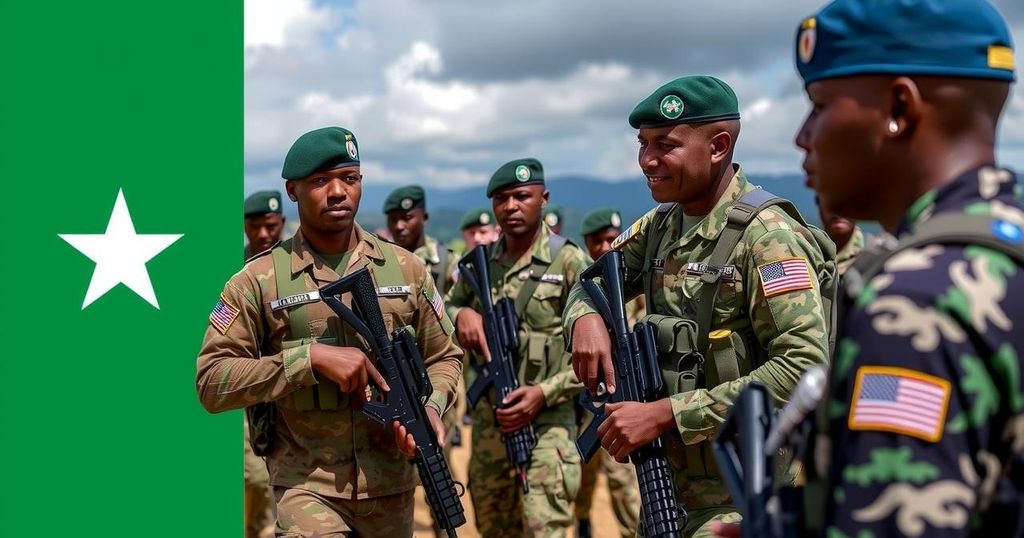The U.S. is advancing its campaign to establish a U.N. peacekeeping force in Haiti led by Kenya, amid rising gang violence and political tension. The initiative aims to address urgent funding shortages for security operations. Despite efforts to gain unanimous approval from the U.N. Security Council, concerns from Russia and China have emerged, complicating the mission’s progress. With gang control rampant, local leaders are advocating for international support to restore order and stability.
The United States has intensified its efforts to convert the Kenya-led multinational force in Haiti into a United Nations peacekeeping force, prompted by worsening gang violence that grounded all air traffic to Port-au-Prince. The U.S., recognizing the dire need for stable funding for the multinational force, proposed a U.N. peacekeeping mission in September to aid Haiti’s national police against rampant gang control, which now dominates 85% of the capital. Recent political upheavals exacerbated tensions, including the firing of the interim prime minister by Haiti’s transitional council, which exacerbated gang violence, culminating in attacks that shut down the main airport after gunfire hit planes. The U.S. attempted to secure unanimous support from the U.N. Security Council to advance the transformation of the Kenya-led force; however, Russia and China expressed concerns, requesting additional briefings on the escalating situation in Haiti. Despite plans for a contingent of 2,500 international police, current deployments number around 430, primarily from Kenya and some from Caribbean nations. Kenya’s President, William Ruto, announced a forthcoming additional deployment of 600 personnel later this year, yet funding remains critically low. With the U.N. trust fund receiving only $85.3 million of the required $96.8 million, the U.S. commitment of $300 million significantly falls short of the estimated $600 million needed for full deployment. The resurgence of gang power in Haiti, following the assassination of President Jovenel Moïse in 2021, has led to increased violence, leading local leaders to request assistance from a U.N. peacekeeping force. While some Haitians support foreign intervention, historical skepticism remains due to past military engagements marred by significant controversies, including allegations of sexual assault and a cholera outbreak linked to previous U.N. missions.
Haiti has been grappling with severe instability exacerbated by political infighting, gang violence, and a dire humanitarian situation since the assassination of its president in 2021. The power of gangs has increased dramatically, leading to widespread crimes and civil unrest. Past foreign interventions, particularly by U.N. peacekeeping forces, have created a complicated legacy due to incidents of violence and mismanagement, fostering a mix of support and skepticism among Haitians regarding foreign military assistance. The current climate calls for significant reform and action, with local leaders advocating for a robust peacekeeping mission to restore order and stability, which the United States is now moving to facilitate through the U.N.
In conclusion, the escalation of violence in Haiti has prompted the United States to push for a U.N. peacekeeping force to take over from the Kenya-led multinational presence. As gang control spreads and political stability remains elusive, the need for adequate funding and international collaboration becomes increasingly critical. Past interventions have shaped local perceptions and responses to foreign military presence, stressing the importance of responsible and effective action to achieve a lasting resolution in Haiti.
Original Source: www.usnews.com






